Related Research Articles

Muddy Waters (1913–1983) was an American blues artist who is considered a pioneer of the electric Chicago blues and a major influence on the development of blues and rock music. He popularized several early Delta blues songs, such as "Rollin' and Tumblin'", "Walkin' Blues", and "Baby, Please Don't Go", and recorded songs that went on to become blues standards, including "Hoochie Coochie Man", "Mannish Boy", and "Got My Mojo Working". During his recording career from 1941 to 1981, he recorded primarily for two record companies, Aristocrat/Chess and Blue Sky; they issued 62 singles and 13 studio albums.
Cadence Records was an American record company based in New York City whose labels had a picture of a metronome. It was founded by Archie Bleyer, who had been the musical director and orchestra leader for Arthur Godfrey in 1952. Cadence also launched a short-lived jazz subsidiary, Candid Records.
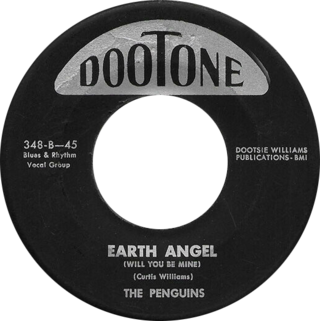
"Earth Angel", occasionally referred to as "Earth Angel (Will You Be Mine)", is a song by American doo-wop group the Penguins. Produced by Dootsie Williams, it was released as their debut single in October 1954 on Dootone Records. The Penguins had formed the year prior and recorded the song as a demo in a garage in South Central Los Angeles. The song's origins lie in multiple different sources, among them songs by Jesse Belvin, Patti Page, and the Hollywood Flames. Its authorship was the subject of a bitter legal dispute with Williams in the years following its release.
Musicology Live 2004ever was a concert tour by American recording artist Prince to promote his Musicology album. The tour began on March 27, 2004 in Reno, Nevada and concluded on September 11 in San Jose, California. It was a commercial success earning $87.4 million from 77 shows in 52 cities across the United States and selling more than 1.4 million tickets. Prince said one of the goals of the tour was "to bring back music and live musicianship."
Phish is an American rock band formed in 1983, dissolved in 2004, and reunited in 2009. It is one of the most successful live acts in popular music history, forging a popularity in concert far greater than their album sales, radio airplay, or music video presence would otherwise indicate. Phish, at the peak of their popularity in the mid- to late 1990s, consistently ranked as one of the highest-grossing concert tours in the world.
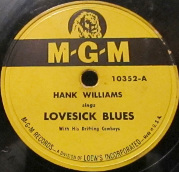
"Lovesick Blues" is a Tin Pan Alley song, composed by Cliff Friend, with lyrics by Irving Mills. It first appeared in the 1922 musical "Oh, Ernest", and was recorded that year by Elsie Clark and Jack Shea. Emmett Miller recorded it in 1925 and 1928, followed by country music singer Rex Griffin in 1939. The recordings by Griffin and Miller inspired Hank Williams to perform the song during his first appearances on the Louisiana Hayride radio show in 1948. Receiving an enthusiastic reception from the audience, Williams decided to record his own version despite initial push back from his producer Fred Rose and his band.
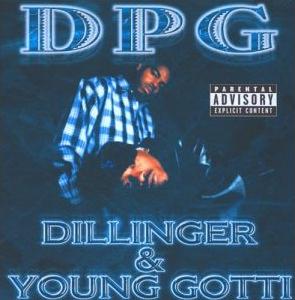
Dillinger & Young Gotti is the second studio album by American hip hop group Tha Dogg Pound. It was released independently on May 1, 2001, through D.P.G. Recordz. Production was handled by member Daz Dillinger, who also served as executive producer, Mike Dean and Blaqthoven. It features guest appearances from Beanie Sigel, RBX, Roscoe, Slip Capone and Xzibit.
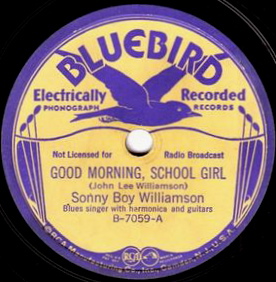
"Good Morning, School Girl" is a blues standard that has been identified as an influential part of the blues canon. Pre-war Chicago blues vocalist and harmonica pioneer John Lee "Sonny Boy" Williamson first recorded it in 1937. Subsequently, a variety of artists have recorded versions of the song, usually calling it "Good Morning Little Schoolgirl".

Z Music Television was a Christian-oriented cable television channel with a music video format similar to that of MTV, and, in its earliest days, direct marketing appeals similar to The Home Shopping Network. Their programming, largely music videos with some documentaries, interstitial "Z Buzz" news updates, and media related shows, was characterized as being aimed at "12-to 54-year olds." Unlike style oriented channels such as Country Music Television, they were not limited to a particular musical genre; they played the full spectrum of Contemporary Christian music from reggae to country music. Z Music Television closed in 2000.

"Here We Go Again" is a country music standard written by Don Lanier and Red Steagall that first became notable as a rhythm and blues single by Ray Charles from his 1967 album Ray Charles Invites You to Listen. It was produced by Joe Adams for ABC Records/Tangerine Records. To date, this version of the song has been the biggest commercial success, spending twelve consecutive weeks on the US Billboard Hot 100 chart, peaking at number 15.
Chelsea Records was an American-based record company founded by musician, songwriter, and record producer Wes Farrell in 1972. Within the company's first four months, it released its first gold single, Daddy Don't You Walk So Fast by Wayne Newton. In addition to Newton, Chelsea featured a number of new and established artists like Tommy Boyce, Jim Gilstrap, Lulu, Jigsaw, New York City, and Rick Springfield.

CBS Records International was the international arm of the Columbia Records unit of Columbia Broadcasting System, Inc. (CBS) formed in 1961 and launched in 1962. Previously, Columbia Records had licensed other record companies to manufacture and distribute Columbia recordings outside North America, such as Philips Records and its subsidiary Fontana in Europe.
Kermit Goell was an American songwriter and archaeologist.
Randall Lamar Howard was an American country singer, songwriter, guitarist, and producer. His music involved outlaw country, traditional country, old southern gospel, blues and Christian country.
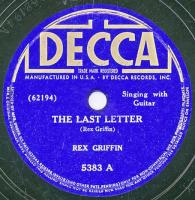
"The Last Letter" is a song written by country music singer Rex Griffin. Griffin wrote the song in 1937, after he was left by his wife. The song tells through a suicidal letter the feelings of an older man who is left by his young wife. The song, released on Decca Records became a hit for Griffin.

Richard Vernon Anthony Anthony was an American musician who composed, conducted, produced, sang and performed sacred music.
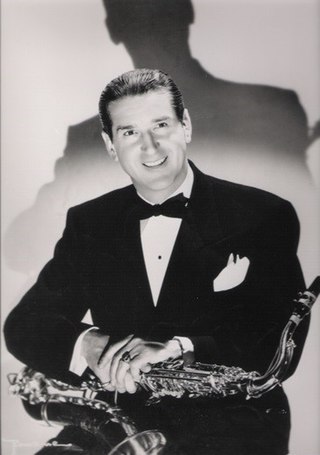
Freddy Nagel was an American bandleader. His band frequented dance halls throughout the United States during the big band era and reached a wide audience on national CBS and Mutual Radio big band remotes throughout the 1940s.
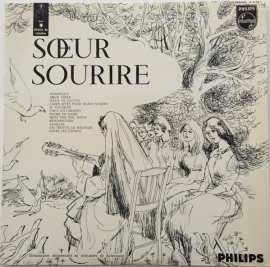
The Singing Nun is the debut studio album by Belgian musician and nun The Singing Nun, released by Philips Records in 1963. A surprise hit, the album topped the Billboard 200 and other charts internationally for several weeks and sold millions of copies, particularly on the strength of the single "Dominique". The album was initially intended to be a give-away, recorded for local children who enjoyed music from the local nunnery, but Philips decided to try giving it a widespread release, resulting in a huge commercial and critical success, garnering sales certifications and award nominations.
References
- ↑ "Disk Jockey with a Difference". Sales Management. 58: 26. 1947. ISSN 0885-9019.
- 1 2 "Hollywood Film Shop" . Traverse City Record-Eagle . June 10, 1947. p. 12. Retrieved August 23, 2017.
- 1 2 Cheatham, Russ (2003). Bad Boy of Gospel Music: The Calvin Newton Story (1st ed.). Jackson, M.S.: University Press of Mississippi. pp. 124, 125. ISBN 978-1578065530.
- ↑ "2G Lee Suit vs. Sacred". Billboard . Vol. 62, no. 50. December 16, 1950. pp. 12, 38. ISSN 0006-2510.
- ↑ "Sacred Expands, Goes to 45 Wax". Billboard. Vol. 62, no. 21. May 27, 1950. p. 13. ISSN 0006-2510.
- ↑ "Word-Sacred Complete Deal". Billboard. Vol. 75, no. 46. November 16, 1963. p. 4. ISSN 0006-2510.
- ↑ "Word May Buy Most of Sacred". Billboard. Vol. 75, no. 44. November 2, 1963. p. 6. ISSN 0006-2510.